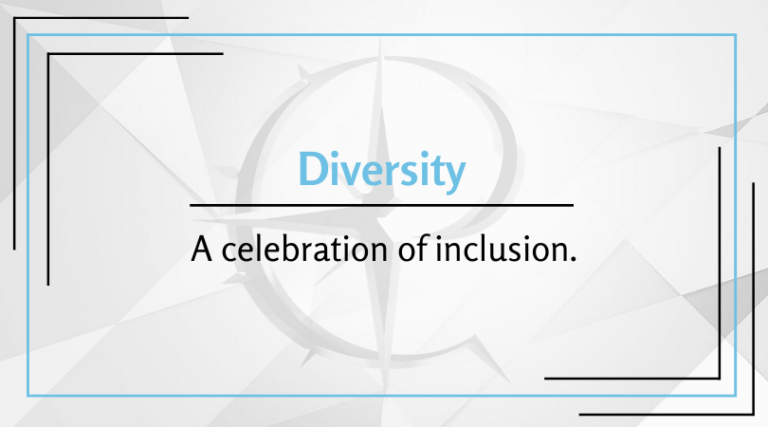Can you hear the drums?
The beat was hard and inconsistent, the sound echoed through the neighborhood. Mostly snare but ended abruptly on the cymbal – hard and aggressive. Across the street from my house growing up lived the Parkers. They were an older African American couple raising their grandson, Terrance, who was just a little younger than myself.
Terrance was a great soul that loved things we overlooked every day. Terrance was autistic. He held a deep, heartfelt love for his family and the drums. He would come over for conversations, short and to-the-point, as he was interested in everything. When he looked at the world, it was an uncorrupted view of how things were in that moment. He was honest in his opinion and vocalized it on impulse. He lived a sincere and honest life, with his emotions carried out in the beats of his drums.
Mr. Parker was a retired postal worker, loud and hard working on his yard, house and family. His volume was usually directed at the weeds he was pulling up or the garage he seemed to always be cleaning out. When he drank whiskey, his volume was deafening; mostly laughter but heavy on opinion. He walked across the street half dancing with the swagger of a politician to impart his wisdom. His two cents always seemed to be a broken version of laughter and content, as if the words themselves tickled as he released them. He was sarcastic in most of his delivery and you could never really tell when he was being serious. My dad loved his company and they would chat for hours, never leaving whoever’s driveway the other had walked to.
Mrs. Parker was sweet and the calm to his storm. She wore full length skirts or dresses that swayed when she walked, not ever seeming to lift her feet except to get in and out of her SUV. She always had a smile on and made it a point to say hello to everyone. As loud and boisterous as Mr. Parker was, she was equally sweet. He doted over her every request and was a man captivated by the woman he married.
My mom sat in the front yard under our large window drinking coffee and catching up with her long-time friend, Libby. We had lived next door to her family for several years prior to moving. She and my mom bonded over raising kids, food and their love for each other. They were amazing caregivers to their families and they found unity in it. Sunday was a routine of meeting at our house and talking through the week’s happenings, the things their kids were doing and politics.
Libby was a dear friend of our family. She had an infectious smile, long dark hair and smoked throughout the conversation. She spoke with a strong midwestern accent from growing up in Indiana that would write a story in the clouds of smoke as they left her mouth. Their political views differed on many topics, but their disagreements often ended in laughter as they poked fun of one another. Neither took offense to the talking points of the debates and always ended cordially with a parting hug and a “see you next weekend.”
When it was cold, they sat inside, but could usually be found under that large window. I would sit and listen to their stories looking for the opportunity where my interjection was warranted. My mom would laugh at most of my offerings, as I have always tried to entertain. They would chat for hours and I looked forward to each week as much as they did.
It was not quite noon, the sun having not yet crested as we sat in the shadow of our house. The hummingbirds bustled around my mom’s rosebushes, stopping at her sugar water feeders she had hung from the lattice my dad and I built for her roses to climb. My bicycle laid haphazardly next to the front door and my dad cursed as he had to step over it. I didn’t wait for direction, immediately moving the bike out of the walkway. I dropped it next to the small pine shrub growing outside of my sisters’ window next to the door. Just in front of the pine shrub, a large Dogwood tree sat off the stone path leading to the door. It swayed gently, with the breeze saturating the air with the smell of the Dogwood and rose blossoms.
As with most weekends, my dad was working in the backyard, tending to his garden and changing the landscape. He watched ‘Karate Kid’ when I was younger and was certain he could create a Zen garden in our backyard. Our neighbor, Pogo, was always there to assist. They bonded over working hard, sometimes at Pogo’s house and other times at ours. They seemed to enjoy the labor of friendship and spent most of the time talking as they efforted. Both men transformed our yards multiple times throughout the years.
Pogo was a Jehovah’s Witness, native born Hawaiian with a wife and 4 daughters that lived just a few houses down from ours. They were strong in their convictions and raised their children with high morals and a strong belief in their god. Our families were connected in friendship and food; regularly fishing, barbecuing, and landscaping. Our religions similar, but dramatic convictions to how we praised our God was not a point of contention nor an opportunity for conversion. They believed in their religion and friendship, which was not mutually exclusive.
As my mom and Libby chatted, the screen door cracked against the house as Mrs. Parker pressed out in a trot to her car. She waved at my mom like usual and ran back inside the house. Although she was on the other side of the street, there was a difference in how she moved; it was a quickened pace. My mom’s expression changed to concern. She sat her coffee down and leaned forward in her wicker chair, looking first at Libby and then to myself.
“Can you here the drums?” she asked quietly. In an instant, I could – it was overpowering. I could not hear anything else. They pounded in time with a heartbreaking resonance. Something was definitely wrong.
In the time that it took me to grasp the weight of the situation, my mom was already heading barefoot down the stone path and across the street. She was half wrapped in a small lap-sized blanket, flannel pants and the sweatshirt she had slept in. Libby trailed her intently as they hurried across the street. My mom laid the blanket across the chain-link fence at the entry to the Parker’s yard and hurried up to the front of the house. Mrs. Parker met her at the door and grabbed my mom in a deep, meaningful hug. The drums began to pattern the hummingbirds as I sat in bewilderment, fast and powerful.
Their embrace shifted into action almost simultaneously. My mom turned and yelled my dad’s name across the street.
“Julian!” she exclaimed without answer.
“Get your dad!” she instructed to me. He had just walked past us on his way to the backyard. I sprinted through the house and out the backdoor to get him.
I push through the backdoor and up the concrete stairs to the backyard. My dad was working in the garden that sat in the back corner, standing over his radish box where neatly formed rows of green shoots had broken through the ground. We had a large set of wind chimes I made for Mother’s Day that hung on the hill behind the garden chiming loudly with the wind. My dad was a little hard of hearing from the years of construction noise and poor ear care at work. The chimes did not help.
“Mom needs you,” I repeated as I ran to him.
He looked baffled in what I was saying, but in an instant it clicked. As if not hearing me and immediate understanding of what I said hit him simultaneously. He ran to the front yard with me jogging behind him as we crossed the street and into the Parker’s home.
The drums were thunderous. Terrance was performing for his grandfather who lay half-awake on the couch with his legs sprawled out; one leg on the couch and the other on an ottoman. Terrance pounded the flesh of the drums louder and harder as he dwelled on the action in the next room. He was unable to rationalize what was happening. He only knew that his grandfather was in pain, so he played the drums. His distress was on display. In the chaos of a drum set is where he found peace. They echoed in the house with every passing moment. Mr. Parker laid on the couch grasping his lower abdomen, his pain evident in the sweat that pooled on the couch beneath as it fell like tears from his brow.
“Tell my boy I’ll be okay,” he grunted, motioning down the hall where Terrance performed. His biggest concern was upsetting Terrance although he could hear the drumming. He could hear what this felt like inside his heart.
Mrs. Parker had called her daughter to watch Terrance so she could take Mr. Parker to the hospital, but she had not arrived in over an hour. We were a working-class neighborhood that took people to the hospital via family car when I was growing up; rarely was an ambulance called. The frustration and fear were starting to build up in her and she was ready to go, but Terrance could not travel in this state of mind. He had to work the emotions out the way he knew how. My mom offered to stay with Terrance and my dad to help them to the car. In that instance, it all made sense. Terrance had been to our house multiple times and felt comfortable enough with us to visit for periods when Mrs. Parker had errands to run and Mr. Parker was out. The offer was well received.
My mom gathered their things for them and held the door as my dad helped Mr. Parker to his feet. He moaned loudly and Terrance echoed him in the back room as they made their way to the door. His stomach cramped with every step and the pain in his stomach was only overpowered by the spasms in his back. They inched their way down the stairs and out to car. Every sound he made was met with a response of a boy and his pain, loud cries and drumbeats. The drums rumbled on as they got situated in the car, buckled in and set on their path for the hospital.
My dad and Pogo continued working on the yard. The drums persisted in the background. They would check on my mom to see how she was doing regularly, taking turns crossing the street and popping their heads in the door where Terrance played. My mom would wave them away keeping him focused on her. Libby left shortly after my mom took to her task and called to check in, asking if we could hear the drums, as it became a measuring stick for the emotions of the day.
My mom stayed at the Parkers home with Terrance until Mrs. Parker’s daughter arrived. In the moment she sat alone next to the drums he unleashed his emotions with his hand and feet. She cheered him on and encouraged his efforts. She played air guitar alongside him and danced to his beat. He focused on her positive energy and slowly pulled himself out of the darkness that tried to engulf him. She separated him from the seriousness of what just occurred with a soulful connection to a broken heart. They laughed and played until he quietly dozed off in her arms. She laid him down to bed and turned out the lights. He had played for hours and his emotions drained him more than the effort.
Mr. Parker spent a few days at the hospital and returned home sore and recovering from an abdominal blockage. His wife hen pecking him all the way into the house, loving every moment of his making it home. Terrance bounced as he walked to-and-from the car grabbing his things one at a time. My mom standing outside got a wave and a greeting on each trip to-and-from the car. He was truly appreciative of the moment she sat with him.
From that moment on, she would yell across the street “Terrance, who-hoo, the rock’n star” as if she was playing air guitar. He would rush inside the house and the drums would begin. In his mind, he was playing to a sold-out crowd and now he had a guitarist. It was whimsical and fun, light and in time as the drums would catch rhythm. She would listen to the drums and smile, connected to a boy and his emotions.
My dad asked my mom how she was when she walked in the house, she patted her hand on his chest and said, “Can you hear the drums?” and walked up the stairs. A warmth came over our house in the moment our neighbors were whole again.
I was lucky to grow up on the south side of Colorado Springs, a military town with a large minority influence. I was not taught about the differences of people. I was raised in a diverse community; we lived in the same communities and helped each other. We went to school and we played together. We went to our jobs and worked together. We went to restaurants and we dined together. We did not look at the things that made us different as a pathway to divide us. We believed in the goodness of each other and allowed our uniqueness to unite us in community.
A community is not just where you live, but where you congregate, whether that is church, school, work or even online. Community is wherever like-minded people gather and can be structured positively or negatively by its congregation. In a values-based work environment, we control the direction of these communities by infusing diversity of thought and people into our community. The benefits of a diverse workforce are wide-ranging, as it creates an inclusive environment where multiple communities are brought together.
The connection Terrance had in our neighborhood was special. Our neighbors listened to the drums and knew how he felt and checked up on their family regularly based on his play. He brought us together, communicating with the beat and tempo of his emotions. He embraced his role in our community and could feel the inclusion in it as he walked the streets chatting with people about his day. Our neighbors all looked forward to the opportunity to say hello. We asked his grandparents about his drums and had a laugh about the times he played late into the evening, no one ever disparaging. We would not have been as connected in our community without him.
I have been in crowd management for many years and have worked with people of every background. I have had the opportunity to hire NASA engineers and high school graduates for similar part-time positions. I have provided staff in many different environments, from stadiums to convention centers and outdoor festivals to indoor arenas in a variety of demographics. My vision was to always to be a snapshot of the community; having an open and inclusive work environment. In guest facing environments, a diverse workforce shows our openness and inclusion to the community that patronize our facilities. This creates a comfortability to our guests that they belong as well.
At Principled Compass, diversity is understanding the unique identity of individuals as we encourage the free flow of ideas with an open and inclusive operating environment. To thrive in this industry, diversity must be a guiding principle, as it defines our relationship with our employees and guests. Our employees look for that place where they feel comfortable, the place they find peace, as the garden did for my father and the drum set did for Terrance. Diversity is a celebration of inclusion and a reflection of the expectations our employees have of us.
Can you hear the drums?


